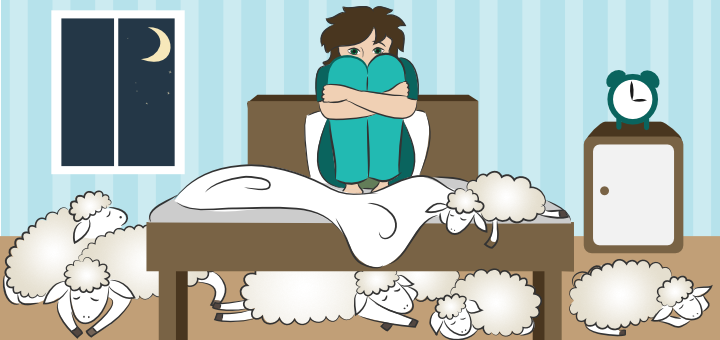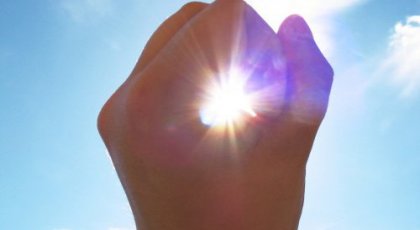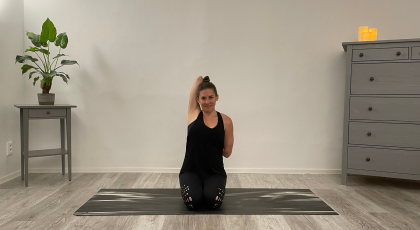View basket (0 items $0.00)

Insomnia Blues: 5 Kinds of Sleep Disturbances and How to Identify Them
Sleep impacts every aspect of our physiology, so it's not surprising that sleep is at the top of the list of questions most health care professionals ask their patients. And it's a topic that is worth investigating yourself as a core part of developing a healthy lifestyle. But what questions should we ask ourselves? And what do we do with the answers? Let’s figure this out.
The first basic question about sleep that we usually lead with is “How’s your sleep?” which would result in a range of answers from “Great!” to “Terrible.” It might also be “Fine” or “OK.” What we really want to know is whether or not the sleep is performing its duty of physiological and mental restoration and reorganization, so we would often elaborate with “Do you wake up feeling refreshed?” If your sleep is anything less than “great,” we would need to conduct further investigation.

The Five Kinds of Sleep Disturbance
There are different kinds of sleep disturbances that one might experience. Identifying which one it is can be helpful when selecting proper tools for dealing with the disturbance.
First, we need to know which part of the sleep cycle is affected. We would ask: “Do you have trouble falling asleep or staying asleep? When do you wake up?” Five different scenarios are possible here.
1. Sleep deficit means that the person is chronically sleep-deprived because she is not giving herself enough sleep opportunity (actual time spent in bed). In this situation, the main problem is usually the transition from waking activities to sleep. This can include staying up late to finish up tasks, watch TV, and so on.
Questions to ask: What time do you go to bed? What time would you like to go to bed? What do you usually end up doing before bed? Do you have a transitioning routine that helps you prepare for bed?
2. Difficulty falling asleep (DFA) means lying in bed awake and unable to drift off. This usually indicates that the body and/or mind are not ready to go to bed. It can be linked to a variety of physiological, psychological, and environmental factors (which we will discuss later).
Questions to ask: What do you do before bed? When you are lying there awake is your body comfortable? What is the environment in your bedroom (temperature, light, noise, etc.) What’s going through your mind?
3. Mid-night awakening (MNA) means waking up in the middle of the night for an obvious (to go to the bathroom) or not obvious reason, and then being unable to go back to sleep. Often an increase in mental activity prevents the student from falling asleep again.
Questions to ask: Is there an obvious reason why you wake up? How often does it happen? Do you turn on the light when you wake up? Do you begin thinking about stuff? How long does it take you to fall back asleep? Do you stay in bed or get up? How do you feel about those awakenings?
4. Early morning awakening (EMA) means waking up at 4:00 am or 5:00 am and being unable to fall back asleep, even when you wish to do so. This might lead some to believe that they don’t need as much sleep as other people, while in most situations, they do need that sleep; they just have a hard time getting it.
Questions to ask: Is there an obvious reason why you wake up? How often does it happen? How many hours do you stay asleep before you wake up? Is it bright in the room when you wake up? Do you begin thinking about stuff? Do you want to fall back asleep? Do you stay in bed or get up? How do you feel about those awakenings?
5. Sleep fragmentation means that instead of staying asleep for the duration of the night, the person has several brief awakenings, but then is able to fall back asleep right away. This is a common side effect of consuming alcohol before bed, but can also happen for other reasons.
Questions to ask: What do you do before bed? Do you consume alcohol? Do you take sleeping pills? What is the environment in your bedroom (temperature, light, noise, etc.)?
Asking these questions will give you a better idea of the symptoms, habits, and attitudes related to sleep you possess and will move you a step closer to creating a plan to troubleshoot any sleep issues identified. Asana practice is rarely the answer when it comes to sleep issues, but luckily there are other yogic tools that work much better.
Also from Olga Kabel-Sleep for Heart Health: Calm Your Nervous System with Yoga for Better Sleep.
Study with Olga Kabel and YogaUOnline - Yoga for Every Body: How to Adapt Yoga Poses for Different Situations, Conditions, and Purposes.
Reprinted with permission from Sequence Wiz.
 Educated as a school teacher, Olga Kabel has been teaching yoga for over 14 years. She completed multiple Yoga Teacher Training Programs but discovered the strongest connection to the Krishnamacharya/ T.K.V. Desikachar lineage. She had studied with Gary Kraftsow and American Viniyoga Institute (2004-2006) and received her Viniyoga Teacher diploma in July 2006 becoming an AVI-certified Yoga Therapist in April 2011. Olga is a founder and managing director of Sequence Wiz-a web-based yoga sequence builder that assists yoga teachers and yoga therapists in creating and organizing yoga practices. It also features simple, informational articles on how to sequence yoga practices for maximum effectiveness. Olga strongly believes in the healing power of this ancient discipline on every level: physical, psychological, and spiritual. She strives to make yoga practices accessible to students of any age, physical ability, and medical history specializing in helping her students relieve muscle aches and pains, manage stress and anxiety, and develop mental focus.
Educated as a school teacher, Olga Kabel has been teaching yoga for over 14 years. She completed multiple Yoga Teacher Training Programs but discovered the strongest connection to the Krishnamacharya/ T.K.V. Desikachar lineage. She had studied with Gary Kraftsow and American Viniyoga Institute (2004-2006) and received her Viniyoga Teacher diploma in July 2006 becoming an AVI-certified Yoga Therapist in April 2011. Olga is a founder and managing director of Sequence Wiz-a web-based yoga sequence builder that assists yoga teachers and yoga therapists in creating and organizing yoga practices. It also features simple, informational articles on how to sequence yoga practices for maximum effectiveness. Olga strongly believes in the healing power of this ancient discipline on every level: physical, psychological, and spiritual. She strives to make yoga practices accessible to students of any age, physical ability, and medical history specializing in helping her students relieve muscle aches and pains, manage stress and anxiety, and develop mental focus.
Featured Courses









